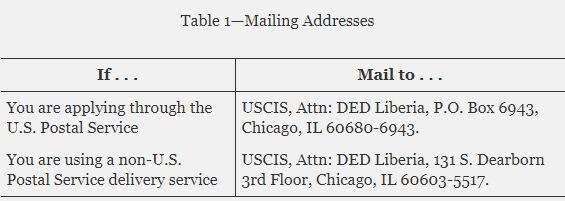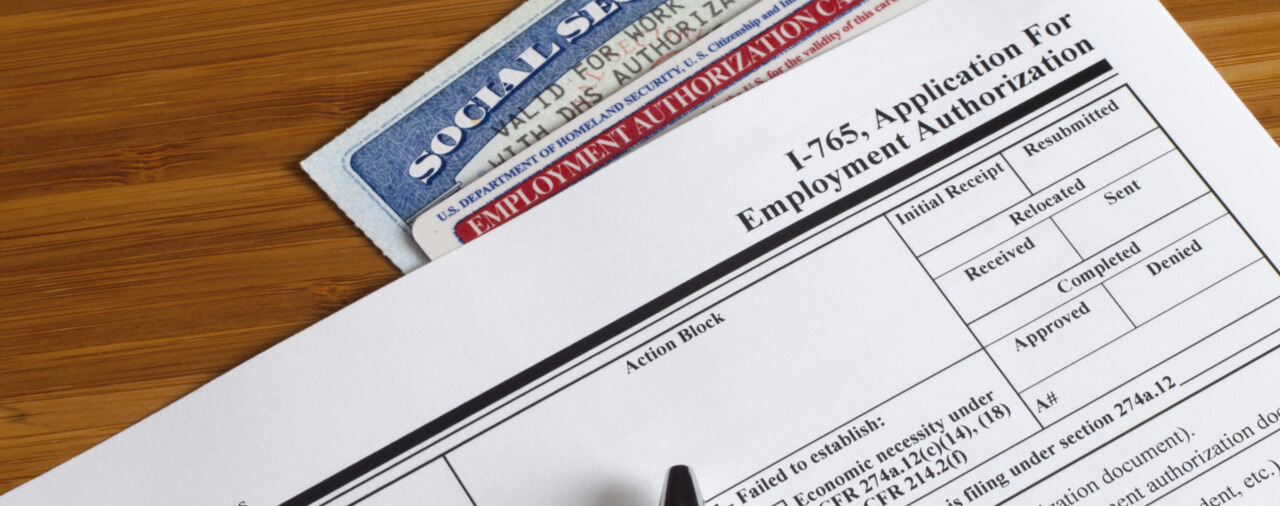- Introduction
- Who is Eligible for Employment Authorization During the Wind-Down Period?
- Automatic Extension of Liberian DED-related EADs
- Applying for a New EAD
- Traveling Abroad
- Conclusion
Introduction
On March 30, 2018, the Department of Homeland Security (DHS) published a notice in the Federal Register (FR) titled “Filing Procedures for Employment Authorization and Automatic Extension of Existing Employment Authorization Documents for Eligible Liberians Before Period of Deferred Enforced Departure Ends” [see 83 FR 13767].
President Trump had previously issued a memorandum to the DHS on March 27, 2018, stating his decision to not renew Liberian Deferred Enforced Departure on March 31, 2018. However, he implemented a one-year “wind-down” period, meaning that the program will not terminate until March 31, 2019. The FR notice thus provides guidance on employment authorization for Liberian beneficiaries of Deferred Enforced Departure during the 12-month wind-down period. Before reading this article, please see our full article on President Trump’s decision to terminate Liberian Deferred Enforced Departure [see article].
Who is Eligible for Employment Authorization During the Wind-Down Period?
To start, the FR notice explains who is eligible for employment authorization during the wind-down period. It states that the procedures in the FR notice apply only to Liberian nationals or individuals without nationality who last habitually resided in Liberia who (1) have continuously resided in the United States since October 1, 2002, and (2) are current Liberian Deferred Enforced Departure beneficiaries. Furthermore, the FR notice adds that “[o]nly individuals who held [Temporary Protected Status (TPS)] are eligible for [Deferred Enforced Departure] under this extension,” and provided that they are otherwise eligible.
Notwithstanding the above, there are six grounds for disqualification from benefits under the Deferred Enforced Departure extension. These disqualifying grounds cover individuals (paraphrased):
Who would be ineligible for TPS for reasons set forth in section 244(c)(2) of the Immigration and Nationality Act (INA);
Whose removal is determined to be in the interest of the United States by the Secretary of Homeland Security;
Whose presence or activities in the United States are determined by the Secretary of State, based on reasonable grounds to believe, to potentially cause serious adverse foreign policy consequences for the United States;
Who voluntarily returned to Liberia or his or her country of last habitual residence outside the United States;
Who weredeported, excluded, or removed prior to March 27, 2018; or
Who are subject to extradition.
Automatic Extension of Liberian DED-related EADs
Qualifying Liberian Deferred Enforced Departure beneficiaries will be eligible to seek employment authorization for the full twelve-month wind-down period. However, the FR notice automatically extends EADs for Liberian Deferred Enforced Departure beneficiaries that have a printed expiration date of March 31, 2018, for an additional six months. That means that these EADs will now expire on September 30, 2018, notwithstanding their printed expiration dates of March 31, 2018. Until September 30, these facially expired EADs in will suffice for employment authorization. A beneficiary may also submit a copy of the FR notice to his or her employer along with the EAD to confirm the automatic extension. However, after September 30, 2018, employers will no longer be able to except Liberian Deferred Enforced Departure-related EADs with an expiration date of March 31, 2018.
Only EADs with an expiration date of March 31, 2018, that also bear the notation of “A-11” on the face of the EAD under “Category” will be subject to the automatic extension.
Please note that employers are required to “accept any documentation that appears on the Form I-9 ‘Lists of Acceptable Documents’ that reasonably appears to be genuine and that relates to [the beneficiary], or an acceptable List A, List B, or List C receipt.” Employers may not request additional documentation. Furthermore, employers may not request proof of Liberian citizenship.
Employers are required to re-verify a Liberian Deferred Enforced Departure’s employment eligibility during the extension period and either properly fill out the Form I-9 or enter the information into E-Verify.
Applying for a New EAD
In order to obtain a new EAD that will serve both as proof of employment authorization through September 30, 2018, and as employment authorization from that date until March 31, 2019, Liberian Deferred Enforced Departure beneficiaries will have to apply for an EAD by filing the Form I-765, Application for Employment Authorization, with the United States Citizenship and Immigration Services (USCIS).
The USCIS began accepting employment authorization applications from Liberian Deferred Enforced Departure beneficiaries on March 30, 2018. It encourages such beneficiaries to apply “as soon as possible to avoid gaps in evidence of work authorization.” The FR notice reminds beneficiaries to bear the following in mind when filing the Form I-765:
Beneficiaries should indicate that they are eligible for Deferred Enforced Departure by putting “(a)(11) ” in response to Question 16 on the Form I-765; and
Beneficiaries must include a copy of their last Form I-797, Notice of Action, showing that they were approved for TPS as of September 30, 2007, if such notice is available (evidence of being approved for TPS as of that date is necessary to establish eligibility).
Liberian Deferred Enforced Departure beneficiaries are required to pay the filing fee for the Form I-765. However, those who are unable to pay the filing feel may request a fee waiver by either filing the Form I-912, Request for Fee Waiver, or submitting a personal letter requesting a fee waiver. To learn more about eligibility for fee waivers, please see our full article on that subject [see article] and on the current Federal Poverty Guidelines [see blog].
The USCIS will notify applicants if it will need to take biometrics from th applicants in order to produce the new EAD.
The Form I-765 must be mailed to the following address, depending on who the applicant is applying through:

There is no electronic filing of the Form I-765.
Traveling Abroad
Individuals who are covered by the Liberian Deferred Enforced Departure wind-down period must apply for advance parole before traveling abroad if they intend to return to the United States with Deferred Enforced Departure benefits. The application for advance parole is filed on the Form I-131, Application for Travel Document. However, note that even if an individual is granted advance parole, he or she is not guaranteed to be readmitted into the United States. Furthermore, if the individual travels to either Liberia or his or her country of last habitual residence, he or she will risk being found ineligible for admission upon return. This is because President Trump’s memorandum lists individuals “who have voluntarily returned to Liberia or their country of last habitual residence outside the United States” as being ineligible for the Deferred Enforced Departure wind-down period.
Before seeking to travel on advance parole, beneficiaries are well advised to consult with an experienced immigration attorney regarding case-specific questions.
Conclusion
Liberians who are eligible to maintain Deferred Enforced Departure benefits during the wind down period may seek to maintain employment authorization for the entire period. These individuals may use the twelve months to seek any other immigration benefit(s) for which they may be eligible or to prepare to depart the United States. Beneficiaries who are still assessing their options may consult with an experienced immigration attorney for case-specific information about their specific immigration situation and advice on whether they may be eligible for other immigration benefits. Furthermore, an attorney may also assist with any issues involving employment authorization during the wind-down period, including proving eligibility for the extension.
Please see our overview of President Trump’s decision to terminate Deferred Enforced Departure for Liberians to learn more [see article].





